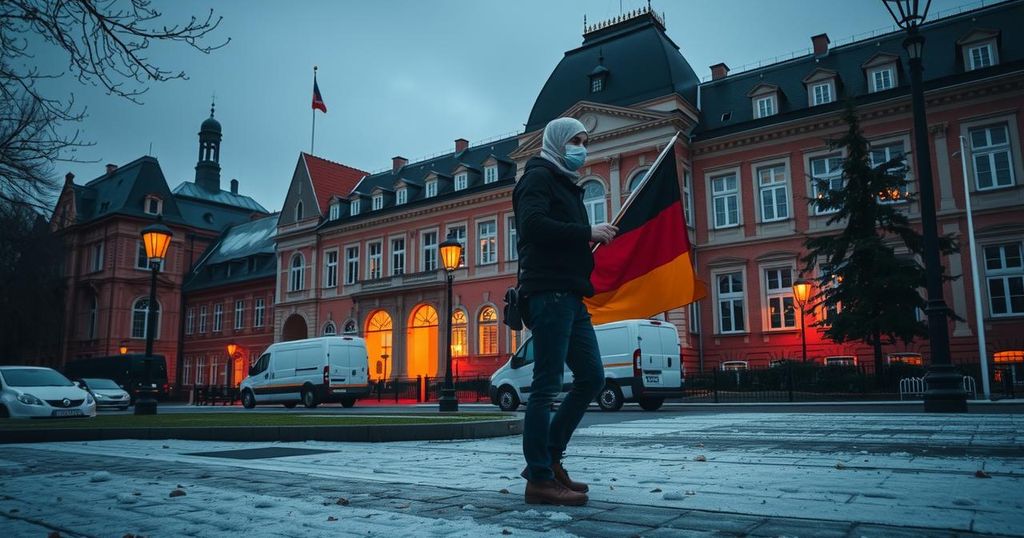World news
ALICE WEIDEL, ANTISEMITISM, ASIA, BENJAMIN HÖHNE, BRANDENBURG, CHRISTIAN DEMOCRATS, DOMINIK KAUFNER, DW, EUROPE, EUROPEAN IDENTITARIAN NETWORKS, EUROPEAN UNION, GERMANY, LOWER SAXONY, MARTIN SELLNER, NORTH RHINE - WESTPHALIA, PARLIAMENTARY ELECTIONS, POLITICS, POPULISM, SPD, SVEN TRITSCHLER, SYRIA, TECHNICAL UNIVERSITY, WORLD WAR II
Fatima Alavi
0 Comments
Impact of Magdeburg Attack on German Political Landscape Ahead of Elections
The Magdeburg Christmas market attack has become a focal point for political discourse in Germany, with far-right parties exploiting the incident to promote anti-immigration sentiments. Misinformation spread rapidly post-attack, suggesting a larger conspiracy involving refugees. As the February federal elections approach, security and migration are likely to dominate discussions, overshadowing other important aspects of migration.
The tragic ramming incident at the Magdeburg Christmas market has sparked debates in Germany, particularly concerning immigration and security narratives. Misinformation rapidly emerged post-attack, alleging multiple attackers and falsely linking them to past refugee crises. Prominent members of the far-right Alternative for Germany (AfD) party sought to exploit the situation politically, blaming other parties for security failures. As Germany approaches its federal elections in February, public discourse is expected to increasingly focus on migration and national security, overshadowing broader discussions about immigration’s benefits. Meanwhile, international dynamics and disinformation campaigns continue to complicate the political landscape in Germany.
The recent attack in Magdeburg serves as a significant event that may influence the upcoming federal elections in Germany. Right-wing parties, particularly the Alternative for Germany (AfD), have sought to leverage the tragedy to push their agendas regarding immigration and national security. This incident has intensified a trend towards increased securitization in political discourse, where immigration is predominantly framed as a security threat rather than recognizing its multifaceted implications, such as labor market benefits. Furthermore, external influences, particularly from U.S. actors, have introduced additional complexities to the political environment.
In summary, the Magdeburg attack is anticipated to have substantial repercussions on the political climate in Germany as elections near. The far-right parties are likely to intensify their focus on security and migration issues, potentially reshaping public opinion and political discussions. Concurrently, the role of misinformation, both domestic and foreign, presents a challenge to the integrity of the electoral process. The political repercussions of this tragedy may shift Germany’s approach to migration policies and its broader societal narratives.
Original Source: www.dw.com




Post Comment